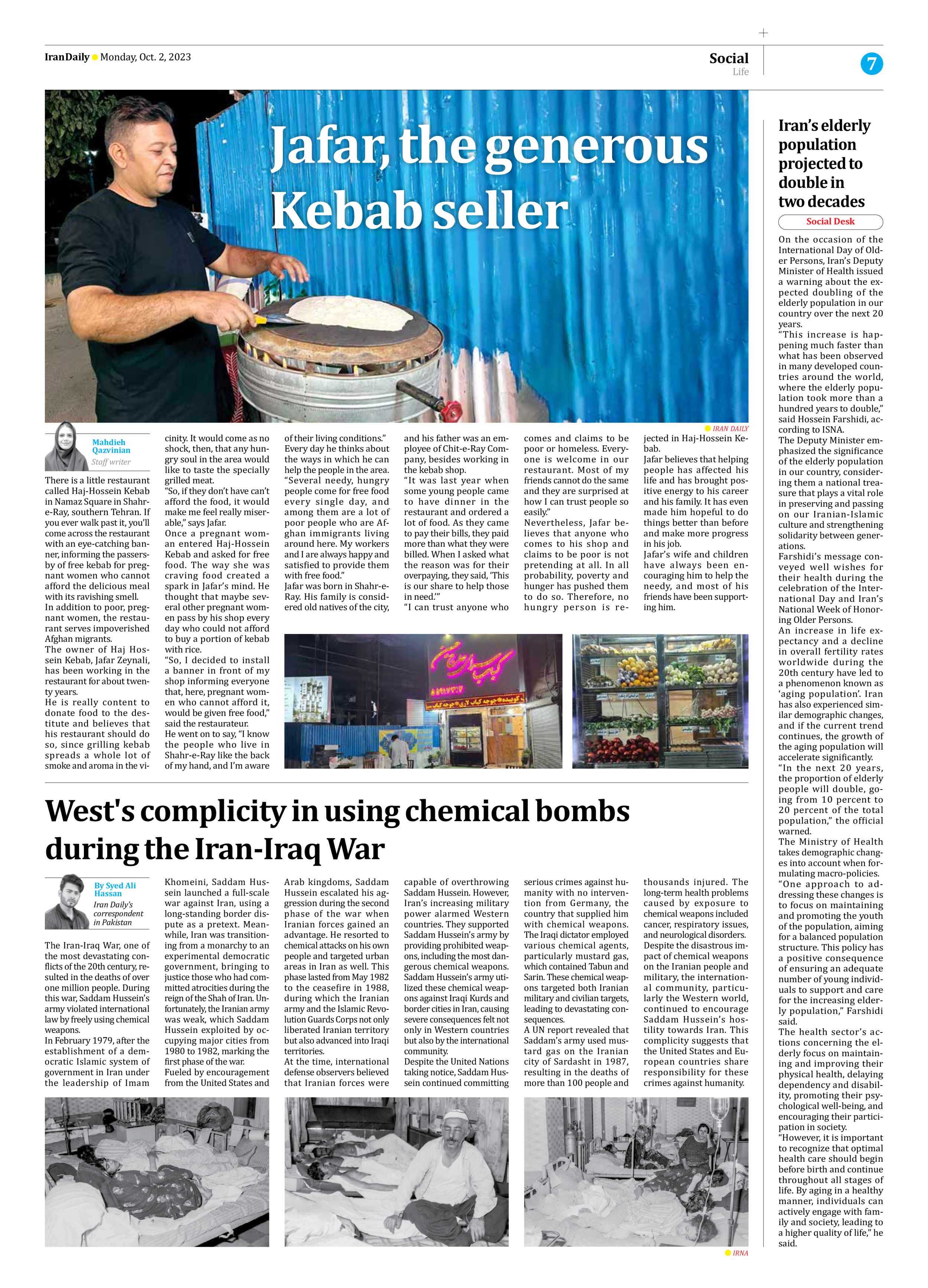
Jafar, the generous Kebab seller
Mahdieh Qazvinian
Staff writer
There is a little restaurant called Haj-Hossein Kebab in Namaz Square in Shahr-e-Ray, southern Tehran. If you ever walk past it, you’ll come across the restaurant with an eye-catching banner, informing the passersby of free kebab for pregnant women who cannot afford the delicious meal with its ravishing smell.
In addition to poor, pregnant women, the restaurant serves impoverished Afghan migrants.
The owner of Haj Hossein Kebab, Jafar Zeynali, has been working in the restaurant for about twenty years.
He is really content to donate food to the destitute and believes that his restaurant should do so, since grilling kebab spreads a whole lot of smoke and aroma in the vicinity. It would come as no shock, then, that any hungry soul in the area would like to taste the specially grilled meat.
“So, if they don’t have can’t afford the food, it would make me feel really miserable,” says Jafar.
Once a pregnant woman entered Haj-Hossein Kebab and asked for free food. The way she was craving food created a spark in Jafar’s mind. He thought that maybe several other pregnant women pass by his shop every day who could not afford to buy a portion of kebab with rice.
“So, I decided to install a banner in front of my shop informing everyone that, here, pregnant women who cannot afford it, would be given free food,” said the restaurateur.
He went on to say, “I know the people who live in Shahr-e-Ray like the back of my hand, and I’m aware of their living conditions.”
Every day he thinks about the ways in which he can help the people in the area.
“Several needy, hungry people come for free food every single day, and among them are a lot of poor people who are Afghan immigrants living around here. My workers and I are always happy and satisfied to provide them with free food.”
Jafar was born in Shahr-e-Ray. His family is considered old natives of the city, and his father was an employee of Chit-e-Ray Company, besides working in the kebab shop.
“It was last year when some young people came to have dinner in the restaurant and ordered a lot of food. As they came to pay their bills, they paid more than what they were billed. When I asked what the reason was for their overpaying, they said, ‘This is our share to help those in need.’”
“I can trust anyone who comes and claims to be poor or homeless. Everyone is welcome in our restaurant. Most of my friends cannot do the same and they are surprised at how I can trust people so easily.”
Nevertheless, Jafar believes that anyone who comes to his shop and claims to be poor is not pretending at all. In all probability, poverty and hunger has pushed them to do so. Therefore, no hungry person is rejected in Haj-Hossein Kebab.
Jafar believes that helping people has affected his life and has brought positive energy to his career and his family. It has even made him hopeful to do things better than before and make more progress in his job.
Jafar’s wife and children have always been encouraging him to help the needy, and most of his friends have been supporting him.







